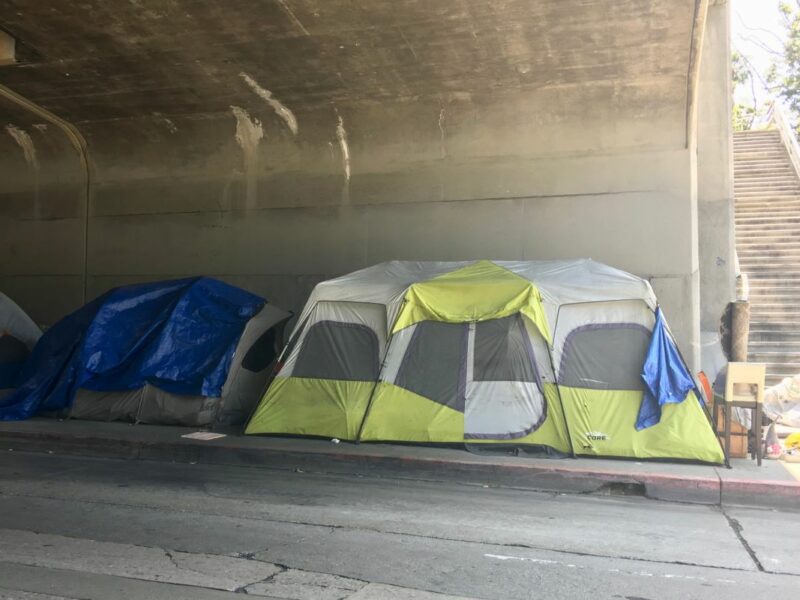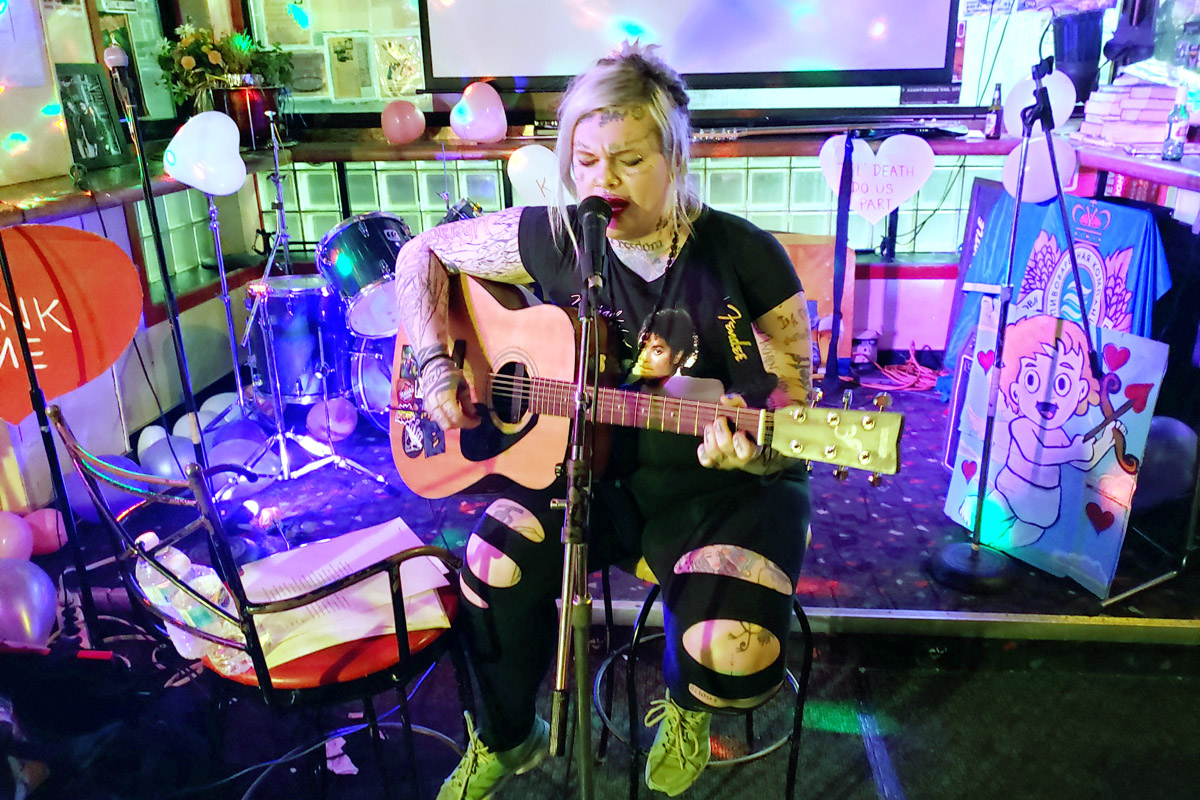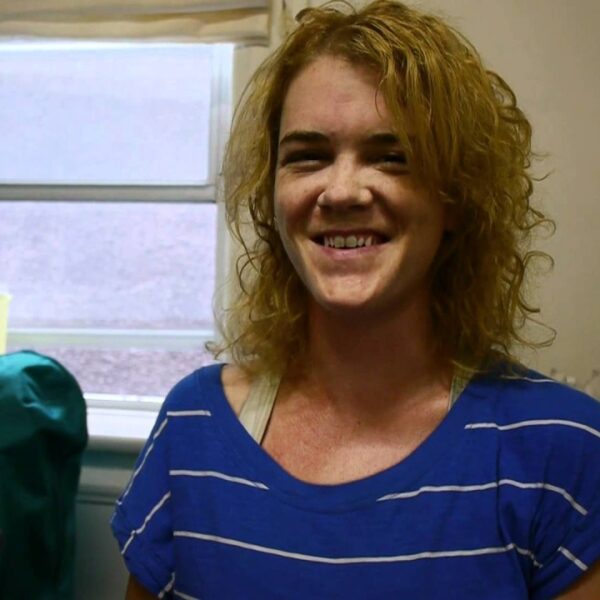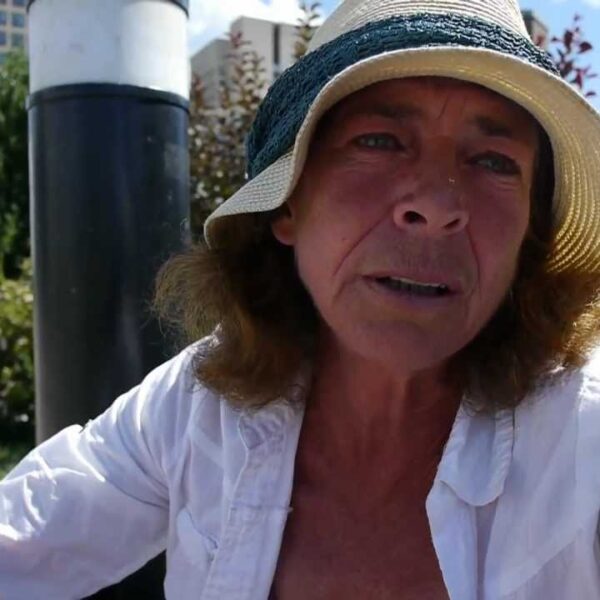‘Everyone Should Have Basic Human Rights like Freedom of Speech, the Right to Housing and the Ability to Feel Safe in their Homes’
Kanaska Carter is enigmatic. A thoughtful and creative singer/songwriter from Ottawa, Ontario, Canada, Kanaska is a unique artist. Her outspoken political opinions, coupled with her unforgettable presence make her a difficult character to miss. Between a constantly evolving catalogue of songs, a local radio show about paranormal activity, and successful efforts at concert production and philanthropy, Kanaska is making a mark on her community.
But life wasn’t always simple for the tattoo-clad songstress.
A survivor of abuse and homelessness, Kanaska often worries about falling in those patterns again. Especially in the wake of a health pandemic that makes performing live music or taking professional tattoo artist appointments nearly impossible. I sat down with her to discuss her unique journey, and she gladly opened up about her story and what issues are occupying her time while the world seemingly stands still.
“The first time I was homeless was many years ago. I had accidentally spilled wine on a roommate’s laptop. I was kicked out the next day,” she said, adding she then slept in a tent on Wreck Beach in Vancouver, British Columbia for a week. Kanaska ended up in the Olympic Tent city fighting for social housing. “I was slandered in tabloids … told I had no musical capabilities. They called me a ‘homeless pretender’ and an ‘internet psychic.’”
“They ripped apart my words,” Kanaska explained. “But we ended up getting social housing for at least 30 people in need during that protest. It was worth all the hate mail I received due to the tabloids.”
Like many, Kanaska is a repeat survivor of homelessness. Her most recent experiences mirror the struggles many are facing when they end up in precarious housing dynamics.
“The last time I became homeless it was due to me asking my landlord to install the trim for my shower. I had to go up into her apartment to shower every day. She said it would be installed within one week. Three months later still nothing had changed. So, when I said I’d pay for it and take it out of my rent owed she gave me an eviction notice one week later. A month later I moved in with an abusive boyfriend and two weeks later we broke up. I was homeless once again.”
Luckily, coping with this obstacle was something Kanaska didn’t have to do on her own. Finding a place to restart her journey ended up making the difference.
“Thankfully, someone was kind enough to allow me to live in her basement while I found suitable housing. I find writing music, books and creating helps me to cope with sadness and depression.”
For Kanaska, her journey is about the music.
Drawing inspiration from her unfortunate realities, she is crafting a musical legacy in the nation’s capital region. As a storyteller, and musical anomaly, she draws from her experiences.
“When I was homeless the first time, I could play music on the side of the streets for hours on end attempting to perfect my music. That hasn’t changed.”
Crafting a legacy of change is an important narrative for Kanaska. Her unique look and voice, and her “can-do” attitude continue to propel her to a spotlight. Standing for and against causes that often are overlooked, Kanaska wants to be remembered as a change maker.
“I want to be remembered as someone who was kind and stood up for the injustices happening on our planet. I’m an artist, author, film maker and singer/songwriter. So I would love to be remembered as a creator who had a passion to make our world a more peaceful place to live. A planet in which basic human rights are met and our freedoms aren’t infringed upon. Because of these experiences I went on to start a non-profit called Human-I Foundation. Focusing on helping humans, animals and the environment.”
She is now in the midst of a quiet lull as an artist. Performance cancellations have hurt her pocket book and promotional tools. Rather than get down, Kanaska has decided to focus her attention on advocacy for another cause.
“If I could influence government today, I would advocate for clean water in every town, city and on First Nations reservations. I would push for the legality of collecting rainwater, the right to grow your own food, the right to live off grid if people wanted to live that way, and also the right to bear arms, just to name a few.”
But those are not the only battles she is fighting.
“I would attempt to be a voice to the unfair wars and genocide happening overseas leaving thousands homeless. Everyone is so focused on COVID-19 right now they are forgetting wars are still happening. In Rojava, Syria someone I really care about is in the YPG fighting to protect the Kurdish people against attacks from ISIS and Turkish forces. His father and brother are being charged with helping to ‘fund terrorism’ and he faces jail time in the UK simply for doing the right thing. He’s certainly not a terrorist. He is simply trying to make the world a better place for those who do not have a voice and cannot defend themselves.”
Regardless of your opinions on that international conflict, elements of her message remain universal.
“I would make sure everyone had basic human rights like freedom of speech, the right to housing and the ability to feel safe in their homes. So many homeless people are thrown into jail for simply existing or standing up for themselves.”
“The silencing of good people needs to stop.”
Kanaska Carter’s musical journey, political opinions, controversial take on gun control, and desire to leave a legacy of social change are all relatable perspectives for many of us who have been homeless.
Change is seldom if ever accomplished by being quiet. It is accomplished by being angry.
It is accomplished by being loud.













